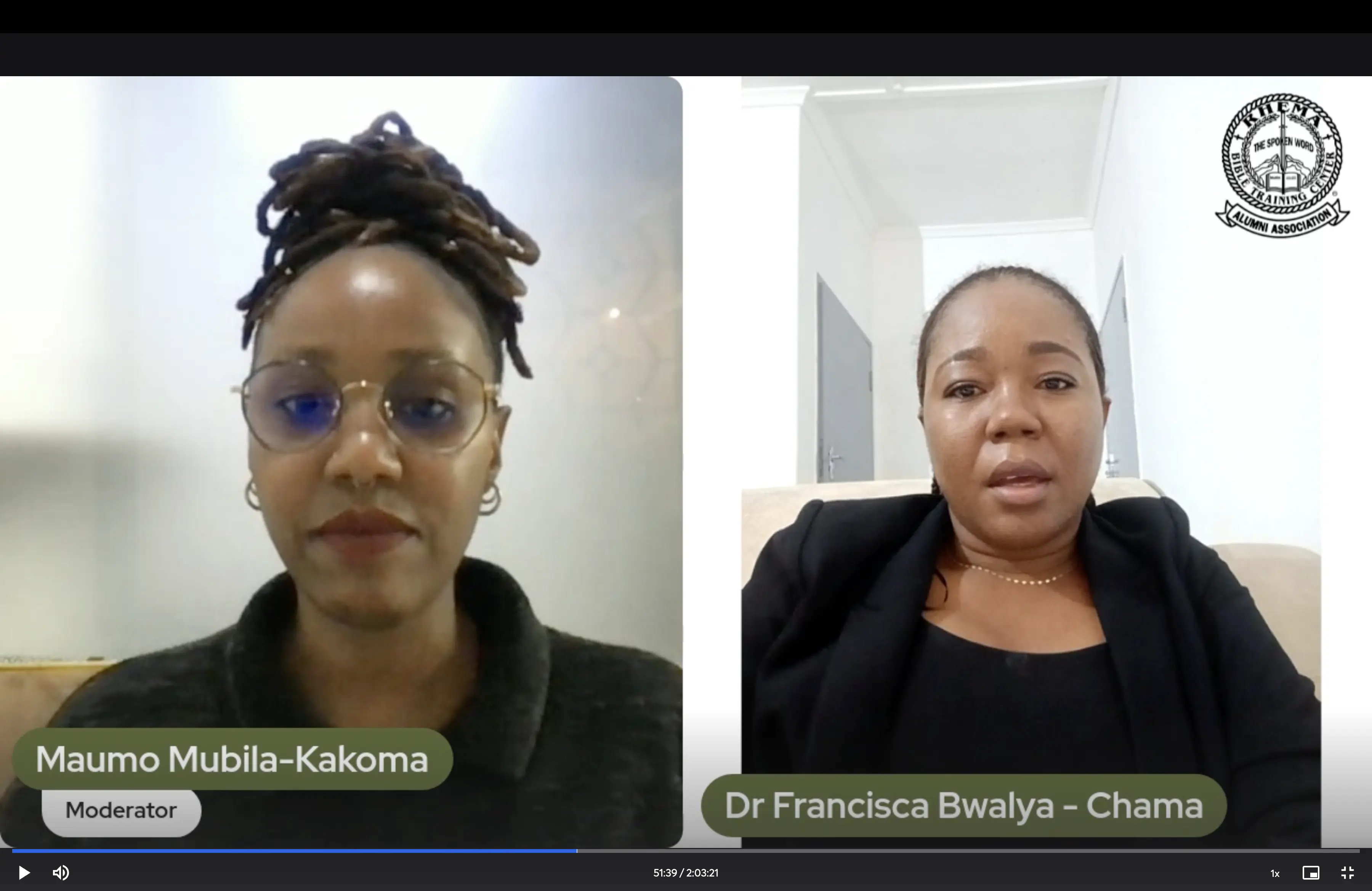
Embracing Suffering and Building Resilience: 5 Insights from Dr. Francisca Bwalya-Chama
by Silumesii Maboshe (Class of 2024)
Tuesday, 29 July 2025
On Thursday, 24 July 2025 during a RAAZ Mental Wellness Webinar, Dr. Francisca Bwalya-Chama—medical doctor, psychiatrist, and Rhema Zambia alumna—offered honest, faith-filled wisdom on facing pain as believers and leaders. For those who could not attend, here are five poignant takeaways from her talk:
1. Suffering is a shared, human experience
Dr. Francisca reminded us that living in a fallen world means everyone—including Christians and leaders—will experience suffering, loss, and stress. Even biblical heroes like Jesus and Paul endured hardship not for wrongdoing, but precisely because they were pursuing God’s will (Romans 8:18; John 16:33)[1].
2. Faith and hope sustain us amidst hardship
Despite pain, our hope in a faithful and trustworthy God offers deep assurance. Suffering is temporary; we are never alone because God is always with us (Psalm 34:18)[1].
3. It’s OK to feel and express emotions
Experiencing sadness, anger, or grief does not make us less spiritual. These feelings are God-given and modeled by Jesus himself (John 11:35). Accepting our emotions as natural responses allows for healthier processing and healing[1].
4. Don’t minimize, ignore, or over-spiritualize pain
Denying our pain—or masking it as mere “spiritual battles”—can worsen stress, anxiety, depression, and even cause physical symptoms. The Bible encourages honest lament and acknowledgment of pain as part of spiritual growth (Ecclesiastes 3:1-4; Psalm 13:1-2)[1].
5. Safe spaces for vulnerability are vital
Leaders need mature, trusted relationships where they can share openly without judgment. In these safe spaces, vulnerability is met with encouragement and biblical wisdom, not criticism (Galatians 6:2)[1].
Reflection questions for your journey
Dr. Francisca’s message is clear: our faith does not remove suffering, but it does transform how we walk through it. As Rhema Zambia alumni, may we walk together with honesty, hope, and love.
- When I face suffering, do I allow myself to honestly process my emotions, or do I tend to ignore or minimize them?
- Who can I trust as a “safe space” for vulnerability, where I can be real about my struggles?
- How might I cultivate both honest lament and faith-filled hope in my spiritual and leadership practices?